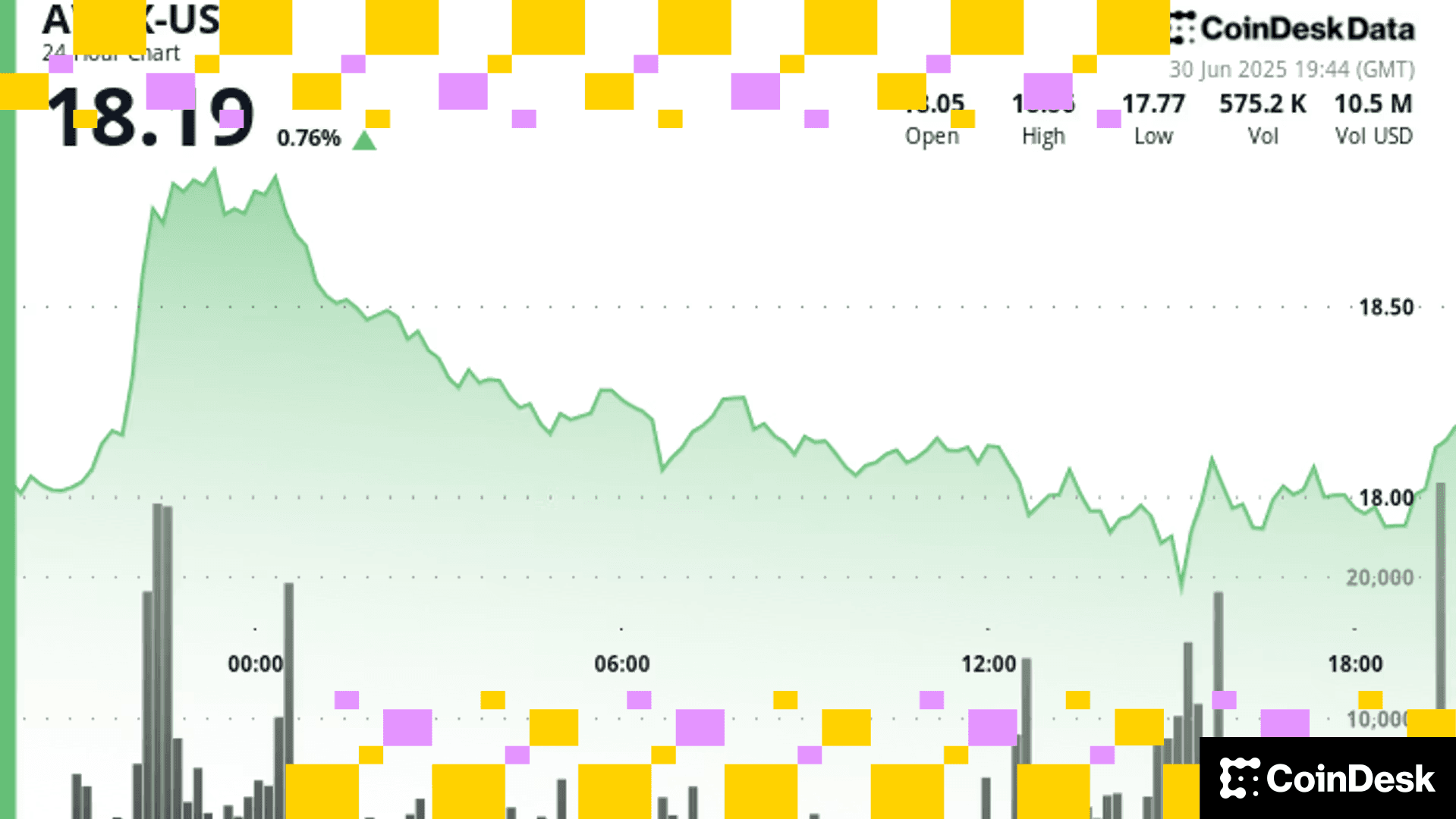With New Prime Minister, UK Still Wants to Be Crypto Hub: Treasury Official
Economic Secretary Richard Fuller took part in a parliamentary debate on digital assets two days after Liz Truss was officially named the country's prime minister.

The U.K. wants to "become the country of choice for those looking to create, innovate and build in the crypto space," Economic Secretary to the Treasury Richard Fuller said in the first Westminster crypto debate on Wednesday.
On Tuesday, Liz Truss officially became the U.K.'s new prime minister, replacing Boris Johnson. She quickly named Kwasi Kwarteng as her finance minister. Fuller was already economic secretary. He was appointed to that role on July 8 after John Glen resigned. In April, Glen, along with then-Finance Minister Rishi Sunak, who also resigned in early July, declared their intention to make the U.K. a crypto hub.
On the regulatory front, the U.K. is trying to catch up with the European Union, which is close to pushing through its wide-ranging crypto bill that has a heavy focus on stablecoins.
"By making this country a hospitable place for crypto technologies, we can attract investment, generate new jobs, benefit from tax revenues, create a wave of groundbreaking new products and services and bridge the current position of [the] U.K. financial services into a new era," Fuller said in the debate.
The Truss government plans to carry on with thefinancial services and markets bill, which is intended to help the regulators govern crypto used for payments like stablecoins. The bill went through its second reading on Wednesday and is now heading to committee stage where it will be unpacked in detail.
Fuller also reiterated government plans to bring forward the Economic Crime (Transparency and Enforcement) Bill, which aims to give law enforcement the necessary powers to seize and recover crypto assets. In addition, Fuller echoed the government's ambition to bring certain crypto assets under the financial promotions regulation to help ensure more transparency in advertising.
More For You
Exchange Review - March 2025

CoinDesk Data's monthly Exchange Review captures the key developments within the cryptocurrency exchange market. The report includes analyses that relate to exchange volumes, crypto derivatives trading, market segmentation by fees, fiat trading, and more.
What to know:
Trading activity softened in March as market uncertainty grew amid escalating tariff tensions between the U.S. and global trading partners. Centralized exchanges recorded their lowest combined trading volume since October, declining 6.24% to $6.79tn. This marked the third consecutive monthly decline across both market segments, with spot trading volume falling 14.1% to $1.98tn and derivatives trading slipping 2.56% to $4.81tn.
- Trading Volumes Decline for Third Consecutive Month: Combined spot and derivatives trading volume on centralized exchanges fell by 6.24% to $6.79tn in March 2025, reaching the lowest level since October. Both spot and derivatives markets recorded their third consecutive monthly decline, falling 14.1% and 2.56% to $1.98tn and $4.81tn respectively.
- Institutional Crypto Trading Volume on CME Falls 23.5%: In March, total derivatives trading volume on the CME exchange fell by 23.5% to $175bn, the lowest monthly volume since October 2024. CME's market share among derivatives exchanges dropped from 4.63% to 3.64%, suggesting declining institutional interest amid current macroeconomic conditions.
- Bybit Spot Market Share Slides in March: Spot trading volume on Bybit fell by 52.1% to $81.1bn in March, coinciding with decreased trading activity following the hack of the exchange's cold wallets in February. Bybit's spot market share dropped from 7.35% to 4.10%, its lowest since July 2023.
More For You











